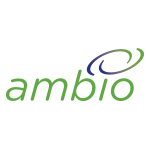NORTH AUGUSTA, S.C.–(BUSINESS WIRE)–Nearly one-fifth of adults are believed to suffer from chronic pain. This type of pain is ongoing and typically lasts more than six months. It has a variety of causes and negatively impacts the quality of life of those who are affected. Traditional pain treatments, such non-steroidal anti-inflammatory drugs (NSAIDs) like aspirin, ibuprofen, and naproxen or analgesics, like acetaminophen (paracetamol), are often not strong enough to treat patients� pain and opioids are highly addictive and problematic. Therefore, safe and nonaddictive alternatives are in high demand.
The natural world is full of venomous creatures whose venoms are full of potential drug candidates, for treating conditions such as diabetes, pain, and cancer. Pain signaling takes place via electrical signaling with the brain. This signaling is accomplished with a combination of ion channels to propagate the signal. Ziconotide, for instance, or ?-conotoxin MVIIA, is a peptide that was first isolated from the cone snail and is an approved medicine for treating chronic pain through blockade of calcium-specific ion channels.
Like cone snails, many spiders also produce venoms which contain a mixture of compounds including ion channel blocking peptides. Certain spiders have evolved different prey immobilization tactics utilizing peptides that are more selective towards terrestrial organisms as opposed to aquatic animals which cone snails would target. Isolation of certain sodium channel blocking peptides from spider venoms have been shown to function as potential therapeutics for pain alleviation.
Through a collaborative effort, spearheaded by professors, Dr. Vladimir Yarov-Yarovoy and Dr. Heike Wulff at UC Davis and supported in part by an NIH initiative, researchers have utilized a venom peptide originally isolated from the Peruvian green velvet tarantula (Thrixopelma pruriens) that blocks Nav1.7 voltage-gated ion channels, an ion channel important in pain signaling. This peptide is rather promiscuous and blocks other sodium voltage-gated channels as well. The UC Davis program uses computer modeling tools to select positions on the peptide which may improve the ability to selectively block pain signals via the Nav1.7 channel, while preventing interactions with other voltage-gated ion channels without causing unfortunate side effects.
Targeting the voltage-gated ion channels may yield useful treatments in an array of disorders, including pain, migraines, epilepsy, neurological disorders, and more. AmbioPharm Inc. is pleased to play an active role in this program helping to take these designed peptides and synthesize these novel and complex spider venom peptides.
�Harnessing the power of natural selection that millions of years of venom evolution and improving upon this with modern tools to design more selective and potent peptides has been one of my lifelong passions,� stated Michael Pennington, Ph.D., the Chief Scientific Officer at AmbioPharm. AmbioPharm is uniquely positioned to assist researchers at all levels in their programs from discovery to commercial production.
About AmbioPharm Inc.:
AmbioPharm, a part of the Ambio Pharmaceuticals Group, is a leading and innovation-driven company specializing in the development and manufacture of peptides and peptide-related products. With a comprehensive range of services, AmbioPharm produces custom products for research, clinical development, and commercial application to pharmaceutical and biotechnology companies worldwide. Founded by Juncai (Chris) Bai, Ph.D. and headquartered in the United States of America and with locations in Europe, the USA, and Asia, AmbioPharm operates internationally with over 14 years of experience and expertise. Further information is available at: http://www.ambiopharm.com
We invite you to read more about the exciting research:
Turning tarantula venom into pain relief (video)
Reference:
Contacts
AmbioPharm Inc.
Michael Pennington, Ph.D.
[email protected]







